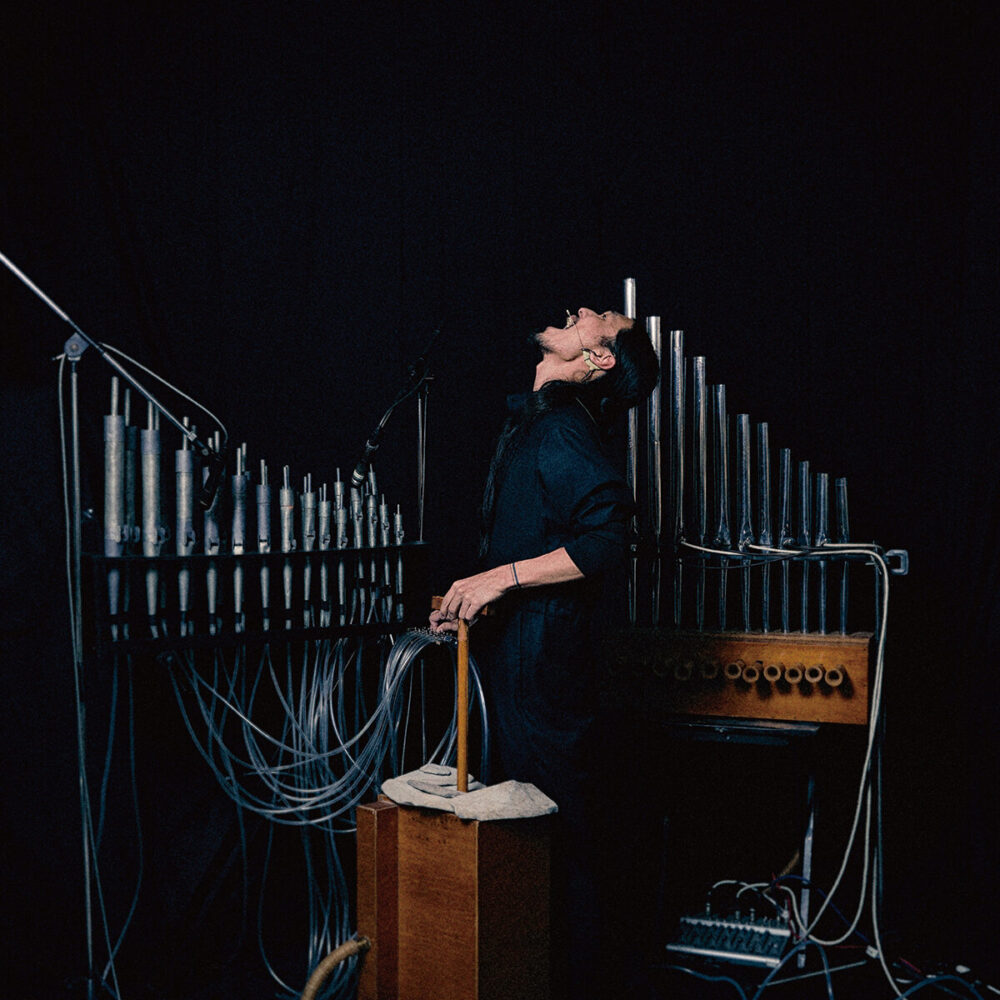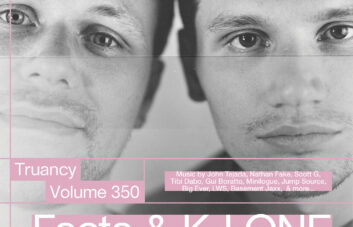The debut album from FUJI||||||||||TA (AKA Fujita Yosuke) has its own history, spanning some 11 years. iki comprises four pieces, each improvised on a pipe organ the sound artist finished building for himself back in 2009. The instrument has been a mainstay of his performances ever since, appearing at small improv shows and in immersive sound installations across his native Japan – and occasionally beyond. Working with pipe organ, voice and sound synthesised water tanks, Fujita is known for his collaborations with cross-disciplinary experimental artists such as Yamataka Eye of Boredoms and Akio Suzuki. His new full-length is the first solo recording he’s released in nine years, and focuses solely on his organ: a hazy, lo-fi photo of the instrument appears on the sleeve, placing its peculiarities front and center.
This instrument is one of a kind, only half-grounded in reality; Fujita didn’t know how to make an organ when its construction began, but those very circumstances resulted in a decade of learning to play, perform and understand an instrument with its own unique character. A far cry from the grand organs you find adorning churches, this pipe organ is a DIY toolbox that travels with Fujita from concert to concert. All organs are unique: Fujita’s has just eleven pipes, and is shy of a keyboard. He plays the pipes like slots, generating sound by pushing down on a connected air pump. While Fujita continues to explore the equipment’s evolving potential in combination with voice or other sonic devices in his live sets, iki simply captures the pipe organ solo, communicating the raw – and ultimately beautiful – sounds it can make on its own.
Fujita has a long history playing the music you hear on iki, but there’s some serious serendipity in his record arriving now. iki folds neatly into a significant moment that ambient organ music is having, with artists such as Ellen Arkbro and Kali Malone leading the way. His music sits well next to theirs; he has a similar command of his instrument, creating sustained music that still hints at motion, as on “nNami”, which combines an unmoving dirge with rapid, trill-like movements. The sound of the record is bright, never shrill, with Fujita playing notes that join softly into harmonics, meeting in the middle. New layers are introduced with the deftest of touches; if this organ was his attempt at creating an instrument that sounds like a ‘landscape’, as the Hallow Ground record label relates, then the additive notes of “keshiki” are a gradual incline, gently climbing. The record’s final track, “sukima”, unveils new space, interpolating brief silences with hooting staccato notes. It’s a gorgeous piece, testament to the steps Fujita has taken in knowing his instrument, and his ability to locate it in new environments.
As much as it is music, iki is machinery. Fujita’s instrument derives power from how much it sounds like a tool, a working object that not only delivers iki’s explorations of ambient and gagaku (a kind of Japanese court music), but exists as part of them. This is not just a record of sounds from Fujita’s organ, it is an exhibition of how the apparatus functions to create them. The inner workings of the device become transparent, the direction of travel is revealed; a constant click of the organ’s air pump forms a throughline in the album, acting as a percussive anchor between these long, undulating drones. Fujita offsets the deep-sinking tone experiment of “osoi” with these clicks, pointing to what runs at the source.
It is a slight, but remarkable, touch. Fujita has restored order, putting the human industry of his instrument out in front of its austere tone. His work reminds us of the spaces music unfolds in, and the experiences that inform it. In this sense, iki works on the same level as the music of fellow organ droner Áine O’Dwyer, another artist who puts the grandiosity of her instrument in conversation with its unassuming environment. iki is deeply personal music, and it reveals years of exploration that extend beyond its four tracks. Through it, Fujita not only shows us the music he can make with his instrument, but the music he has discovered within it.
FUJI||||||||||TA – iki is out now on digital and vinyl formats via Hallow Ground, available here.
FUJI||||||||||TA: Website, Twitter, Soundcloud, Instagram, Bandcamp




